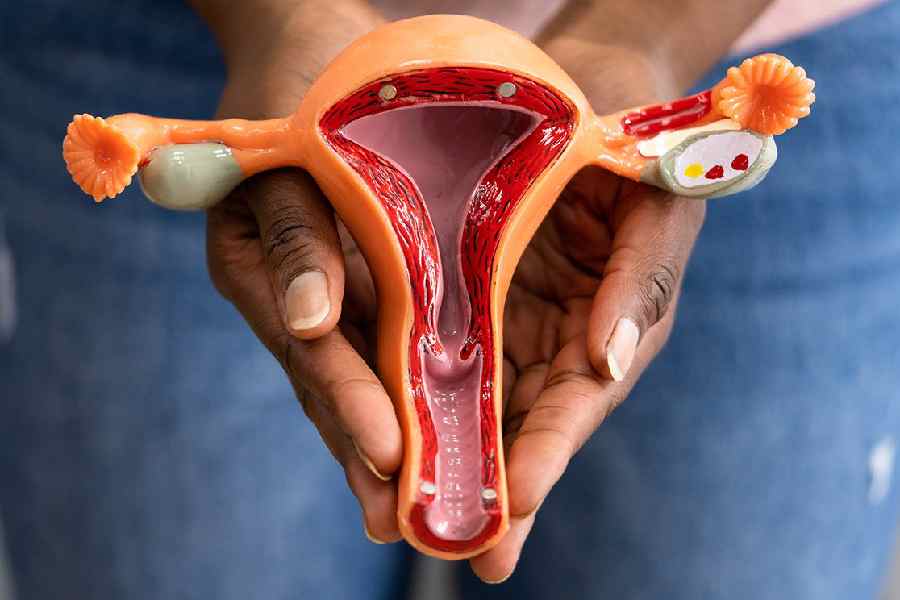Testing for symptoms such as abdominal bloating, pain, or feeling full soon after beginning to eat can detect a fourth of the early-stage ovarian cancer cases, according to a new research.
Researchers said that when diagnosed through this method of 'symptom-triggered testing,' complete removal of the cancer cells through surgery was possible in about 60 per cent of the cases.
While previous evidence has suggested that ovarian cancer symptoms can start to show up anywhere between three months and three years before diagnosis, the researchers, including those at the University of Birmingham, UK, said these symptoms are often vague, making early detection difficult.
For their study, published in the International Journal of Gynecological Cancer, the researchers recruited over 1,700 women, who underwent symptom-triggered testing.
Seven per cent of the women, or 119, were diagnosed with high grade serous ovarian cancer, which is the most common, aggressive, and lethal form of the disease.
In most of these women, cancer did not hugely interfere with their daily lives, meaning they either were fully active, or were able to do everything but strenuous activities, the researchers said.
About 90 per cent of the 119 women (aged 32-89 years) were post-menopausal.
The participants were recruited from the 'Refining Ovarian Cancer Test accuracy Scores (ROCkeTS)' study in the UK, which aims to validate models designed to predict risk of ovarian cancer among women showing symptoms.
"Our results demonstrate that one in four women with high grade serous ovarian cancer diagnosed through (symptom-triggered testing) were diagnosed with early-stage disease -- stage I or II," the authors wrote.
Further, cancer cells were completely removed through surgery in 61 per cent of the 119 women (73), they said.
"Our figures demonstrate that in a real-world setting, symptom-based testing can potentially lead to diagnosis of high grade serous ovarian cancer with low disease spread and results in a high proportion of complete (removal of the cancer cells)," the authors wrote.
The findings also suggested that complete surgical removal of cancer cells is possible even in advanced stages, which is when high grade serous ovarian cancer usually tends to get diagnosed, provided the women showing suspicious symptoms are fast-tracked for further investigation and treatment, they said.
In India, ovarian cancer is the third most common cancer, accounting for over six per cent of all cancer cases among women, according to the International Agency for Research on Cancer, the World Health Organization's cancer agency. The estimates were released in February this year.
Except for the headline, this story has not been edited by The Telegraph Online staff and has been published from a syndicated feed.











